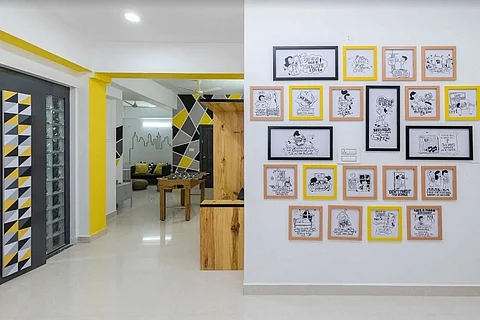

One trend that has been going on in the job market for nearly a decade is the widespread migration in search of better job opportunities. And this has been happening in both the blue-collar and white-collar workforce. Urban millennials, especially, are moving to cities such as Delhi, Mumbai, Bengaluru and Hyderabad, among others, for jobs. This brought about a massive demand for housing in these cities.
Around 2012-2014, there was a spurt of startups in the housing rental space - from Commonfloor, Housing.com, Magicbricks, PropTiger to Nobroker - looking to cash in on this opportunity. While some failed, some continue to exist even today. But in most cases, a millennial wants a room and not an entire house to live in, something most of the initial startups didn’t offer. Another major gap in the industry right now is finding homes with amenities already present.
And with this market only growing each year, it begged for innovation. Enter co-living spaces.
A breed of startups such as Bengaluru-based Nestaway, YourOwnROOM, Homigo and Housr entered the market to try and solve more than just the issue of finding a house.
Largely a fragmented market even today, there is a massive opportunity that co-living spaces offer. India is a $50 billion housing market, which includes 15 million migrant students and 40 million migrant professionals. There is an untapped demand of 60 million beds currently and this creates a huge opportunity for companies and startups operating in the space. According to a RedSeer report, the co-living market in India presents an opportunity of $12 billion.
The latest to now join the race of long-term rental housing and shared housing is Ritesh Agarwal’s OYO. With its new business segment called OYO Life, the company is now betting big on this nascent market. With OYO Life, the company wants to offer long-term rental space with fully managed independent residential units, inclusive of contracting, furnishing, cleaning, maintenance, and in-stay services.
“While co-living startups are revamping the sector, the market is still unorganised and is mostly focused in the metropolitan cities. Most players in the market are either operating as marketplaces that offer furnished housing options or as discovery platforms where you can find co-living shared homes without having to go via a broker. With OYO Life, we are offering long-term living spaces that are fully managed and hassle-free,” says Rohit Kapoor, CEO, New Real Estate Businesses at OYO Hotels & Homes.
OYO Life is targeting millennials and young professionals, who are looking for fully managed homes on long-term rentals, at affordable prices. OYO says that currently about 20% to 30% of the guests at OYO Life are students.
Competitive advantage
OYO claims that while there are other players such as Nestaway, YourOwnRooms, etc, most of these companies focus on solving only a few parts of the housing problem. OYO Life claims to be the only player offering end to end managed residential places. Each accommodation will also provide essential amenities such as Wi-Fi connectivity, television, regular housekeeping, power backup, CCTV surveillance, and 24/7 caretaking.
“OYO Life’s brand proposition is that we take care of everything that comes with shared housing. We furnish the place, we clean the place, we fix things when they break, we track all the bills, and hence we ensure that all you have to do is just move in and start living. There is no liability of long-term financial deposits or upfront furnishing costs,” Rohit adds.
Rohit Kapoor, CEO, New Real Estate Businesses, OYO Hotels & Homes
To further gain an advantage over other players, OYO Life is pricing its room competitively. The cost of an OYO Life property starts from Rs 7,999, and OYO claims that in some cases, depending on the location and size of the room, in terms of sharing, prices can be as low as at Rs 5,999 per bed, per month for a fully managed shared living space.
OYO Life is currently present in Bengaluru, Noida, Gurgaon and Pune, with over 260 buildings, 10,000+ beds and it claims to be adding 3000+ new beds every month.
OYO has grand plans for this new business segment. Rohit says that OYO Life is key to OYO’s growth strategy and expects to benefit from the Rs 1,400 crore investment committed overall to India and South Asia for the year.
In terms of the capital required to grow this business, Rohit says that OYOo’s existing scale of operations, technological capabilities and network of partners will help it acquire and operate OYO Life properties at lower costs.
“Currently, we have a common helpline number and email for potential property owners through which they can send requests to lease their buildings with OYO Life. Once we get these requests, our on-ground team visits the site for quality inspection and if the building matches our requirements, we onboard the property for a period of two-five years, which is then followed by the process of renovation and upgrade. The median time for the entire process - from identifying to making it ready-to-rent - is 18 days for us now,” Rohit adds.
OYO now has an ambitious target of 1,00,000 beds in India by the end of 2019, being present in the top 10 metros. And for this, it is also open to both organic and inorganic expansion, with the aim of acquiring entities that assist OYO Life in building capabilities and/or scale.